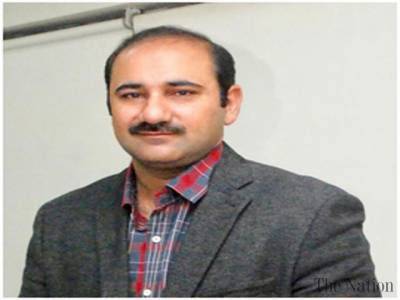A zerbaijan, the nation and former Soviet republic, is bounded by the Caspian Sea and Caucasus Mountains, which span Asia and Europe. Its capital, Baku, is famed for its medieval walled Inner City. Within the Inner City lie the Palace of the Shirvanshahs, a royal retreat dating to the 15th century, and the centuries-old stone Maiden Tower, which dominates the city skyline. The country is famous as “the land of fire” which is the natural fire, known as Yanar Dağ, has been blazing in Azerbaijan for at least 65 years. One of Azerbaijan’s most famous sites is Yanar Dağ (or “Burning Mountain“), a natural glowing fire burning on a hillside along the Caspian Sea.
Azerbaijan is a predominantly Muslim country; more than three-fifths of the population is Shi’i, and about one-third is Sunni. Members of the Russian Orthodox or Armenian Orthodox Church constitute a very small percentage of the population. The official language is Azerbaijani. And currency is Manat.
The beginning of AD, Azerbaijan was a part of the Sassanid Empire in the 3-7th centuries and later Arabic Caliphate conquered the country in the 7th century. As Azerbaijani people mostly adopted Islam during the time of Rashidun chalifs, Independent Albanian Apostolic Church of Azerbaijan existed in the northern part of the country, especially in western mountainous regions, Nagorno Karabakh till it was abolished and subordinated directly to the Armenian Church by Russian Empire in 1836.
Acceptance of Islam in the 7th century made a great change in the history of Azerbaijan. Islam turned a strong push in the formation of unique people and the language and quickened this process. Islam, as a common religion of Turkic and non-Turkic ethic groups, led to formation of the same traditions, moral and spiritual revival, widening of kinship relations and deepening of the integration process in the territory of Azerbaijan. Islam united all the Muslim Turkic and non-Turkic ethic groups living in the region. After Arabic Caliphate fell into decay since the mid of the 9th century, Turkic-Islamic empires consolidated their positions in the Caucasus, in the Middle East. States ruled by Islamic-Turkic dynasties such as Sajis, Shirvanshahs, Salaris, Ravvadis, Shaddadis, Seljuqs, Atabays, Timurid, Ottoman, Qara Qoyunlus, Ag Qoyunlus, Safavids, Afshars, Gajars and others set the seal on the history of the Azerbaijan statehood, of the whole South Caucasus and the Near and the Middle East.
28th May, 1918, the Azerbaijan Democratic Republic-the first parliamentary, democratic and Muslim republic in the whole East and Islamic world was established. During 23 month independence, Azerbaijani nation proved that no colonial or repressive power is able to crush its freedom ideals and state traditions. The first theatre in the Muslim East was founded in Azerbaijan, and the first opera was also staged here. Azerbaijan was the first country in the Muslim world that granted women voting rights.
The latest period of modern Azerbaijani statehood was marked with the adoption of the Constitution Act about the State Independence of Azerbaijan Republic on October 18, 1991 and is still successfully going on. The patriotism, national and spiritual values of our people and Turkic-Islamic unity were re-established in Azerbaijan.
In 1993, Heydar Aliyev was elected the president of the independent Azerbaijan. Under his leadership, Azerbaijan ensured its political-economic stability and started the development in the different fields of social and economical life, as well as on human rights and democracy. As a result, Azerbaijan was accepted full member of the Council of Europe in 2001.
Today, Azerbaijan is pursuing balanced foreign policy, expanding the relations with both Eastern and Western countries. Azerbaijan is also cultural bridge between Muslim and Western countries. Azerbaijan won 2011 Eurovision Song Contest which proved that Muslim country Azerbaijan is able to represent Western values as well. In 2015, 1st European Games was held in Baku. In May, 2017, this year Azerbaijan hosted 4th Islamic Solidarity Games. And in June, 2017, Formula 1 Grand Prix will be organized in Azerbaijan.
Azerbaijan is in 39th place among 148 countries in tourism competitiveness indicators, according to Azerbaijan’s Center for Economic and Social Development. The country had the world’s fastest-developing travel and tourism economy (a 46.1-percent increase) in 2017. In January 2017, Government of Azerbaijan introduced its electronic visa for a single-entry visit of up to 30 days. The e-visa is available to tourists from 93 countries, who can apply on the e-visa website (evisa.gov.az). Pakistani citizens can get online e-visa to visit Azerbaijan.
Because of new approach towards tourism and visa, in 2018, a record high number of 2,849,600 foreign citizens visited Azerbaijan. The number of visitors from Pakistan to Azerbaijan also increased 10 times.
Azerbaijan enjoys great role to culturally connect the West and the East. As a member of the Organisation of the Islamic Conference (OIC) and the Council of Europe, Azerbaijan is in active to organize forums and conferences on intercultural dialogues aiming to reduce confrontation and minimize hostility between various cultures. Fulfilling this purpose, the Government of Azerbaijan organizes annual World Forum on Intercultural Dialogue and International Humanitarian Forum in Baku. In June, 2015, 1st European Games was organized in Baku and on April 22-28, 2019, Azerbaijan hosted 1st Formula Grand Prix races.
Azerbaijani cuisine is full of different types of greens and vegetables such as aubergine, tomato, sweet pepper, spinach, cabbage, onion, sorrel, beet, radish, cucumber, green beans. Rice and products made from flour are widely used in national cuisine.
In all perspectives, Azerbaijan is a magnificent multicultural land to visit and stay. Furthermore, the tourism policies and efficient air lines will provide you a splendid experience of your life.






